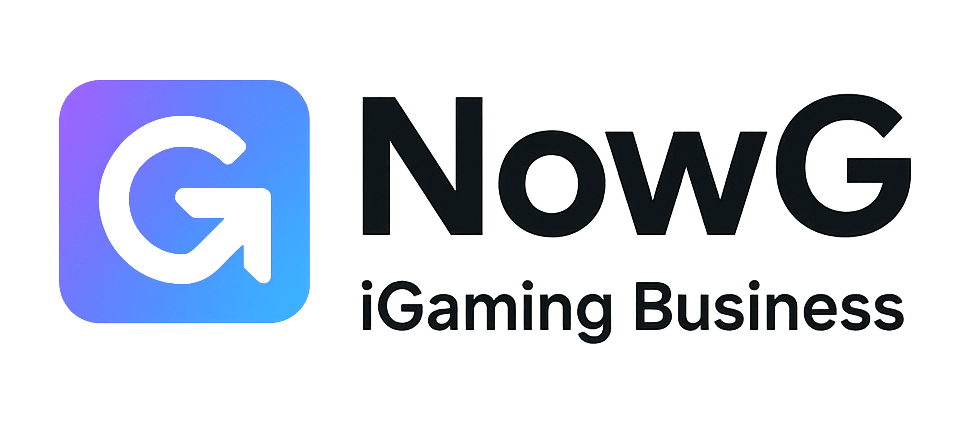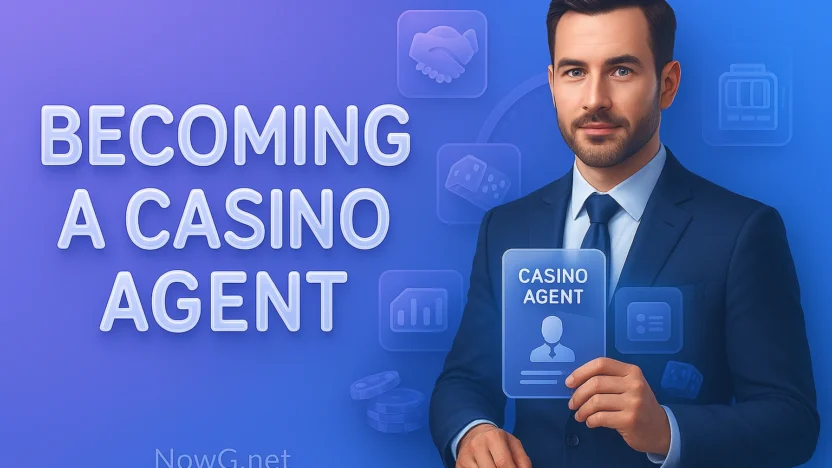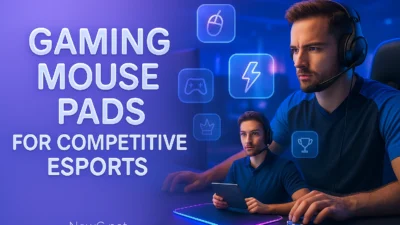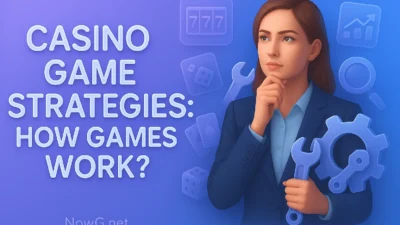Last Updated on August 27, 2025 by Caesar Fikson
You aspire to be the rainmaker, facilitating connections between quality players and reputable operators while earning a substantial income. That’s the casino agent job in one line. Below is a practical, operator-grade guide: what the role actually is, the paperwork and risk you must respect, the tools that make you credible on day one, and a 90-day plan that turns “idea” into income.
What a casino agent does? (and how it differs from an affiliate)

Affiliates typically promote at scale via content, SEO, PPC, or social—paid by CPA, RevShare, or Hybrid. Agents work higher-touch: sourcing known traffic—communities, streamers, tipsters, VIP groups, referral networks, local clubs, Telegram/WhatsApp audiences—and brokering those players to operators under tighter deals and accountability. Think “managed introductions” and “ongoing relationship management,” not just “throw traffic at a link.”
Why operators like agents: higher intent, better retention, human screening, and less fraud.
Why agents like the gig: fatter deals per player and real upside on whales—if you stay compliant and keep quality high.
Step 1: Handle legality like a pro
Online gambling is regulated. Rules differ by country and sometimes by state/province. There are three pillars you can’t skip:
- Where you market: Some regions are open, some license operators only, some restrict advertising outright. You must target only jurisdictions where promotion is permitted.
- Who you work with: Operators should be licensed for the market you’re promoting. Ask for license details, responsible gaming controls, and AML/KYC procedures.
- How you market: Clear disclosures, no targeting minors, no misleading “guaranteed wins,” opt-out on communications, respect for local ad codes.
If in doubt, talk to a lawyer before you run a single campaign. You’re building a business; treat compliance like a moat, not a chore.
Step 2: Choose your business model (and know the math)
Core commission types
| Model | What it means | Best for | Upside 😎 | Downside 😬 |
|---|---|---|---|---|
| CPA | One-time payment per qualified player (e.g., FTD) | Fast cashflow | Predictable, simple | No long-tail upside |
| RevShare | % of net gaming revenue over time | VIPs, loyal communities | Compounds if players stay | Volatile month to month |
| Hybrid | Smaller CPA + smaller RevShare | Balanced risk | Cash now + long tail | More complex reconciliation |
| Flat/Retainer | Fixed fee for a scoped service | Brand deals, streamers | Guaranteed revenue | You carry acquisition risk |
| Tiered | Payouts scale with volume/quality | Growth phases | Rewards momentum | Can reset monthly (watch carryover) |
Operator math to sanity-check: Ask how they calculate net (gross wins − bonuses − chargebacks − tax/fees − platform fees). Get this in writing. Understand negative carryover rules and VIP exclusions.
Step 3: Pick markets and player profiles
You don’t sell “casino to everyone.” You match formats to people:
- Sports-led countries: lead with sportsbook + cross-sell to casino during off-season.
- Slots-centric audiences: streamers, community groups, content sites with game reviews.
- Table/VIP: concierge-style onboarding, fast KYC support, higher withdrawal limits, host access.
- Payment preferences: if your audience prefers instant bank, wallets, or vouchers, partner with brands that actually support them.
Start with one flagship GEO and one audience you can reach directly. Depth beats breadth.
Step 4: Build a credible toolkit
You are only as good as your visibility and response time.
- Tracking & attribution: use software that supports S2S postbacks, player-level goals, bonus code attribution, subID breakdowns, and real-time reporting.
- Anti-fraud hygiene: device/IP signals, velocity checks, and transparent rules that don’t false-flag legitimate players.
- Deal desk & CRM: a simple pipeline (leads → onboarded → active → VIP) with notes, promo codes, and last contact date.
- Communication stack: WhatsApp/Telegram (carefully, with consent), email, and a fast landing page explaining your offer and responsible-gaming policy.
- Finance ops: invoice templates, W-8/W-9 equivalents where needed, and a payouts log that reconciles to each operator’s report.
Step 5: Source operators and negotiate like an adult
Operators don’t want volume; they want good volume. Your pitch:
- Who your audience is (demographics, channels).
- Expected monthly FTDs or active bettors and the traffic source quality.
- Support needs (custom bonus codes, GEO/OS targeting, creative review).
- The attribution window you need and proof of past performance (if any).
Negotiate commission, negative carryover, min activity clauses, payment terms, creative approval time, and a trial period with a review checkpoint. If you deliver VIPs, ask about bespoke tiers.
Step 6: Design the player offer without burning your reputation
Your job is to reduce friction and keep promises.
- Onboarding: short, lawful signup steps; clear KYC requirements up front.
- First-time package: reasonable bonus with fair wagering; no gotchas.
- Payments: promote methods that actually work in your GEO and pay out fast.
- Responsible gaming: deposit limits, cool-offs, and self-exclusion options visible and respected.
Players remember two things: how fast they could deposit, and how painless their first withdrawal was. Nail those and you’ll never struggle for referrals.
Step 7: Acquire players (efficiently)
- Owned channels: niche content site, newsletter, Discord/Telegram, or a local community you already run.
- Influencer/streamer partnerships: co-create content, give them a custom code and transparent reporting.
- Local events/sponsorships: pub quizzes, sports clubs, gaming meetups—where you can lawfully promote.
- Referrals: reward existing players for qualified referrals (within local rules).
Guardrail: zero spam, zero misleading claims, zero targeting of minors. Your brand is trust.
Step 8: Optimize with numbers that actually matter
KPI board you’ll check weekly
| KPI | Target | Why it matters |
|---|---|---|
| FTDs per 100 clicks | Benchmark by GEO, trend up | Measures funnel quality, not just traffic |
| Approved KYC rate | > 85% for mainstream GEOs | Low friction = more real players |
| First withdrawal success | > 90% | Trust hinge—predicts retention |
| NGR per active | Trend up | Monetization quality |
| Churn to 0 activity (30d) | Trend down | Offer/UX fit |
| Chargeback/fraud rate | Low and stable | Saves you from clawbacks |
| RevShare tail (90d) | Rising cohort curves | Real compounding, not churn spikes |
Step 9: Keep compliance close (and documented)
- Creative approvals: archive each approved banner/landing.
- Age gates & disclaimers: standardize.
- Data protection: store player data minimally; secure devices; respect opt-outs.
- Marketing logs: who you contacted, when, and what you said.
- Problem gambling referrals: know where to send people who ask for help.
This isn’t red tape—it’s how you keep the business.
Step 10: 30-60-90 day execution plan
Days 1–30 — Proof of life
- Pick one GEO and one audience.
- Sign two operator deals (one primary, one backup).
- Stand up tracking, codes, reporting, and a basic disclosure-compliant landing page.
- Run a small campaign to your warmest channel and deliver 20–50 FTDs.
Days 31–60 — Operational confidence
- Review cohort quality with operators; adjust bonus and onboarding flows.
- Add one influencer/partner and one referral mechanic.
- Publish two evergreen content pieces (e.g., “first withdrawal guide,” “responsible limits”).
- Hit 75–100 incremental FTDs with stable KYC/withdrawal success.
Days 61–90 — Scale with discipline
- Negotiate improved tiers or hybrid terms based on delivered quality.
- Add one new GEO or one new channel (not both).
- Introduce VIP handling: fast support, direct host contact (via operator), tailored promos.
- Automate reporting to a weekly snapshot; reduce manual work.
Money math (example scenarios)
| Scenario | Commission | Players/month | Month 1 payout 💵 | Month 3 payout (with RevShare tail) 💵 |
|---|---|---|---|---|
| Pure CPA (mid-tier) | $120 CPA | 80 | $9,600 | $9,600 |
| Hybrid (balanced) | $60 CPA + 20% RS | 60 | $3,600 + early RS ≈ $1,200 | $3,600 + maturing RS ≈ $3,000 |
| RevShare-heavy (VIP skew) | 35% RS | 30 | ≈ $0–$1,500 (depends on early NGR) | ≈ $4,000–$8,000 (tail compounding) |
These are directional. Your GEO, game mix, bonus policy, and player quality decide the real numbers.
Common pitfalls (and how I avoid them)
Chasing every GEO at once. You’ll dilute quality and lose leverage. I start with one tight pocket, perfect the funnel, then expand.
Mystery net revenue. If “net” isn’t defined, you’re guessing. I demand the formula and sample statements up front.
Over-bonusing. Aggressive offers attract bonus abusers and spike chargebacks. I prefer smaller, fairer promos with fast withdrawals.
No post-deposit journey. If players don’t know game basics, limits, and how to cash out, they churn. I send a short “how to enjoy safely” guide after the first deposit.
Player experience playbook
On day one, set expectations: how to verify identity, typical payout times, limits, and responsible controls. Share a two-minute guide on “first withdrawal.” Encourage deposit limits from the start. Celebrate wins responsibly; never imply guaranteed outcomes. Be the agent who makes the experience smooth and honest—operators will prioritize you, and players will refer friends.
Light sales scripts (steal this and adapt)
Operator outreach:
“Hi [Name], I manage [audience/region]. We average [X] qualified FTDs/month with [channel]. I’m looking for a 30-day trial with [model]. I’ll need custom codes, real-time reporting, and a contact for fast KYC escalations. If we hit [target], we revise to [tier]. Quick call this week?”
Influencer partner:
“Your audience matches [X]. I handle compliance, codes, tracking, and player support. You get a clear dashboard and on-time payouts. Interested in a 30-day test with a fair split and a sane bonus that won’t burn your community?”
FAQ
Do I need a company?
Yes, act like a business: register, get a business bank account, handle tax correctly.
Can I work with multiple operators?
Absolutely. Diversification helps negotiation and reduces risk if one brand changes terms.
What if an operator claws back?
It happens with fraud/chargebacks. Reduce it with better screening, fair bonuses, and fast KYC support. Track clawbacks per operator; if a pattern emerges, renegotiate or move.
How do I handle problem gambling concerns?
Provide clear links to help resources, honor self-exclusion requests immediately, and avoid any messaging that pressures play.
Conclusion
Becoming a casino agent isn’t about spamming codes. It’s about curating fit: the right operator for the right audience with the right guardrails. Do that consistently, keep your reporting spotless, and your deals get better, not worse.
Quick comparison table
| Lever | What you control | Why it matters | Risk if ignored |
|---|---|---|---|
| 🎯 Targeting | GEO, audience, channel mix | Quality > volume | High churn, clawbacks |
| 💬 Messaging | Honest promos, clear KYC/withdrawal info | Trust, retention | Complaints, brand damage |
| 🧮 Deal terms | CPA/RS/Hybrid, carryover, tiers | Predictable income | Surprise deductions |
| 🛡️ Compliance | Creative approvals, age gates, data handling | Longevity | Account shutdowns |
| 📊 Reporting | Real-time visibility, cohort analysis | Faster fixes, better deals | Flying blind |




